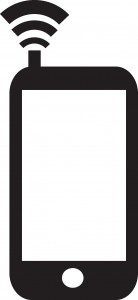 At the height of its popularity in 2009, Research in Motion (RIM), the company that developed the BlackBerry, controlled a hefty 54% of the smartphone market share and looked to solidify its position for years to come. The main draw of the BlackBerry platform was its dedication to business interests and its easy integration into corporate networks and e-mail servers.
At the height of its popularity in 2009, Research in Motion (RIM), the company that developed the BlackBerry, controlled a hefty 54% of the smartphone market share and looked to solidify its position for years to come. The main draw of the BlackBerry platform was its dedication to business interests and its easy integration into corporate networks and e-mail servers.
Since then, RIM’s market share has plummeted worldwide and as of November 2012, less than 2% of phone users chose a BlackBerry. When Apple released the iPhone in 2008, its usage of touchscreen technology coupled with its sleek interface led to Apple’s last five years of industry dominance and a revolution in the handset marketplace.
Yet since Steve Jobs’ death, questions have risen about whether or not Apple can remain on the forefront of smartphone innovation, and there are a few handsets that have become serious challengers for the mantle of “Best-Selling Smartphone”. Do reports of slipping Apple market shares endanger the iPhone’s coveted status as head honcho?
Samsung Galaxy S4 vs. iPhone 5: Who Is Ahead?
In a recent development, Samsung has overtaken Apple as the biggest smartphone producer. Apple now commands 13.6% of the market and Samsung has a whopping 33%. The Korean tech firm produces hardware that is compatible with Google’s Android operating system and many iPhone critics point to the openness and freedom of the Android platform compared to the tight proprietary control that Apple maintains over the iOS software. Many believe that is the reason for the iPhone’s slow decline.
The newly released Samsung Galaxy S4 has several marked advantages over the iPhone in addition to the operating system, including a faster processor, a significantly higher resolution camera and some innovative software features. Still, while it may be true that Samsung sells more phones total than Apple, the current iPhone 5 is still far and away the number one selling model of smart phone, followed by the Samsung Galaxy S4, and then the iPhone 4S.
It is a difficult and partly subjective decision over which phone is the best smartphone, and if one goes off sales alone, the iPhone controls the market and the reason is the image and culture that Steve Jobs cultivated for years. The fact that the iPhone was the first major touchscreen smartphone has created the notion that Apple is the most advanced, and ultimately the “coolest” phone which has contributed to its sales more than any one particular software or hardware feature.
Since its founding in the 1970’s, Apple and Jobs have cultivated a particularly loyal group of fans and the feeling of being part of Apple’s elite user base has allowed people all over the world to feel a sense of exclusivity when they purchase Apple products.
This phenomenon is particularly difficult to quantify, yet the proof lies in the fact that the current iPhone 5 was by no means the most technologically advanced handset when it was released, yet sold over 5 million units in the first weekend it was available. The “coolness” factor of Apple has created a sense of brand loyalty practically unheard of in the technology industry and has left Microsoft and Google scrambling to try and capture some of that light.
Who do you think is in the lead in the smartphone race?
About the author: Jonathan Hammerstein is a freelance writer focusing on tech subjects such as social media, cell phones, gadgets, tablets and others as well.
photo credit: Loraw2000











Speak Your Mind